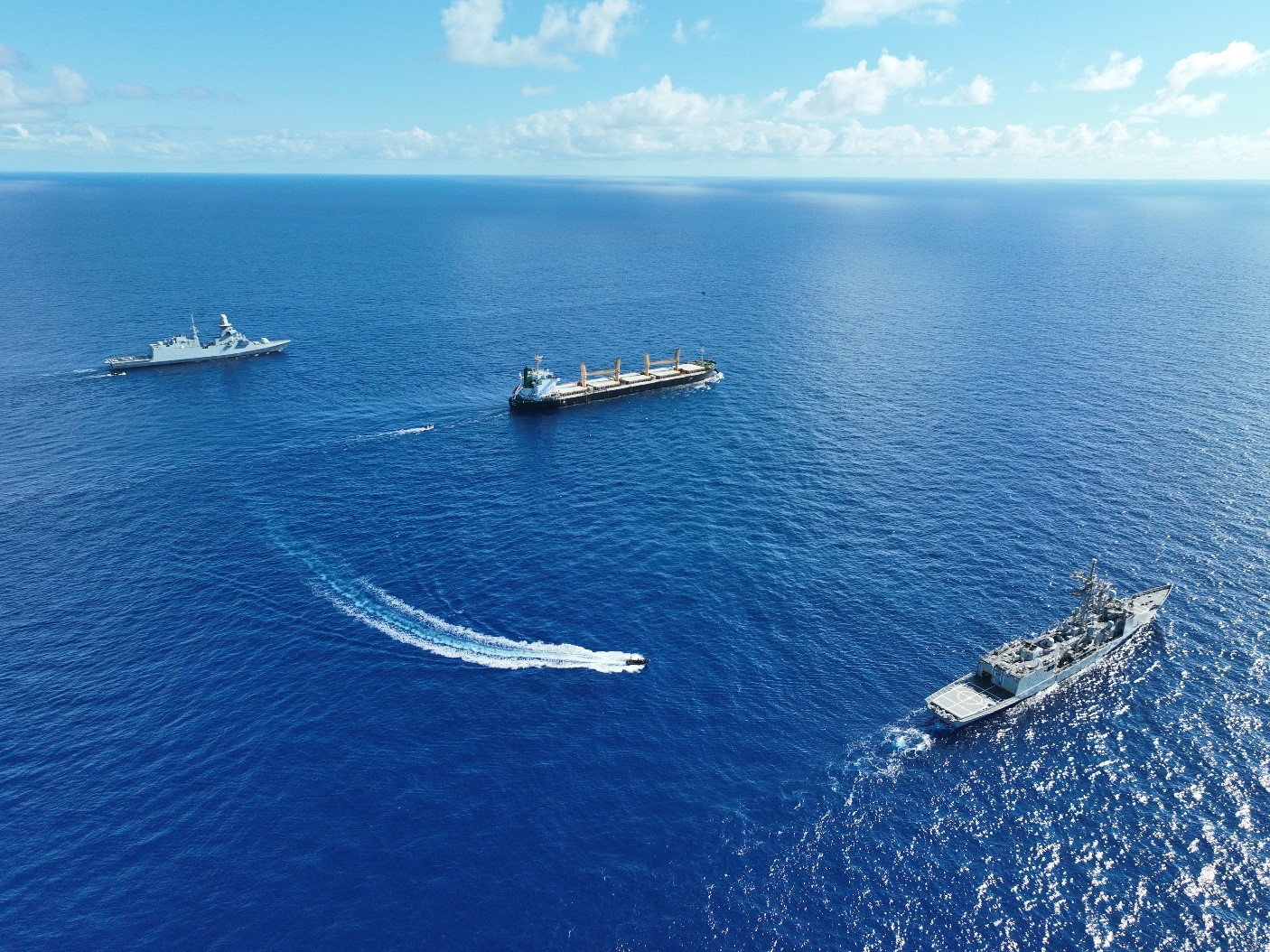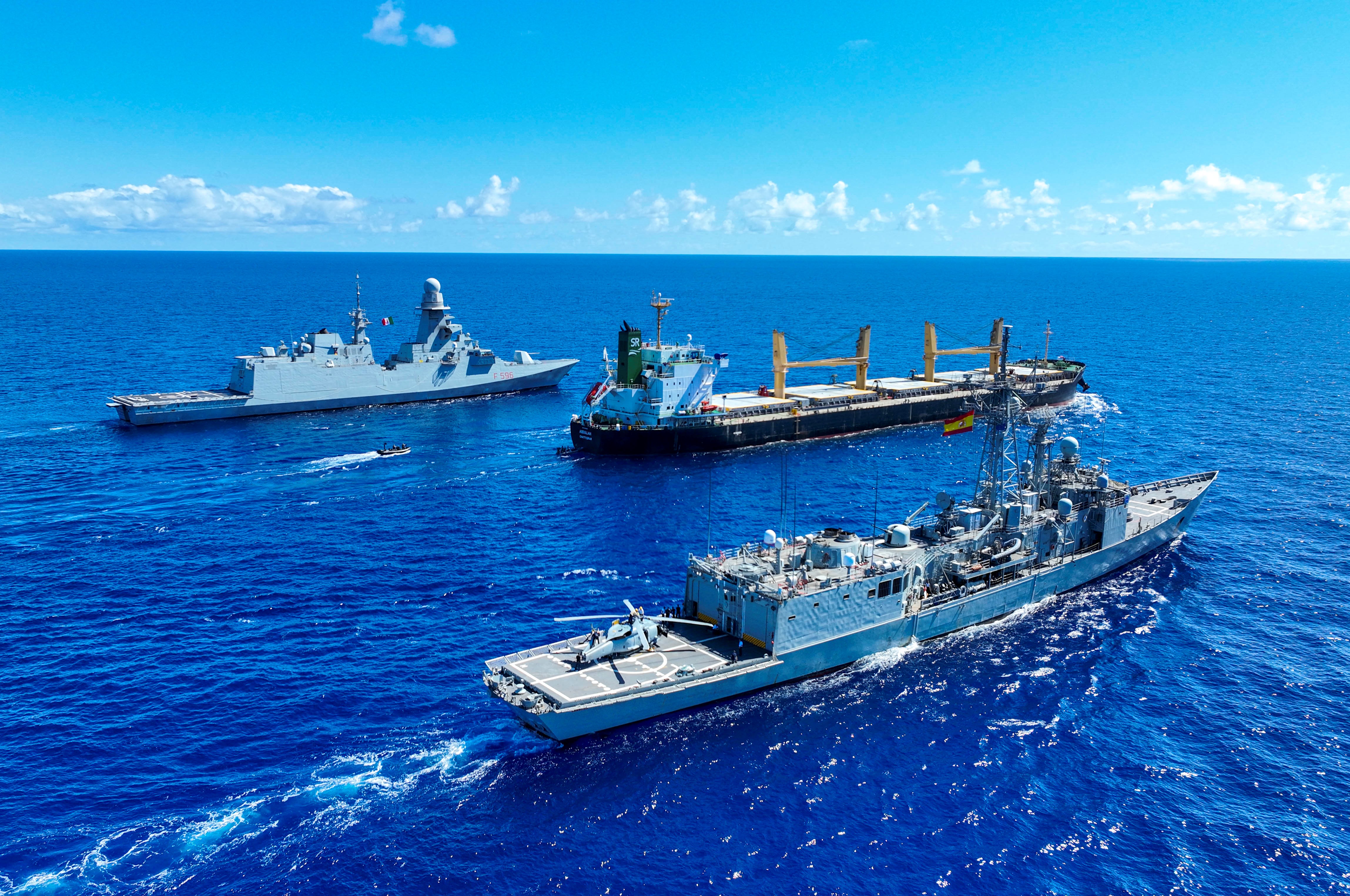
The frigate F-86 'Canarias' assists in the liberation of a ship hijacked by pirates in Somalia waters
- The Spanish Navy frigate provides support to the ship 'Abdullah' and its 23 crew members after their release
The Operation EUNAVFOR ATALANTA confirms the release of the vessel ABDULLAH and its 23 crew members. The frigate "Canarias", deployed in this operation for two months, was assigned to monitor the ship's movements during the liberation process. Thus, it maintained constant monitoring of the pirates movements on board the ship, and of their subsequent landing on the Somali coast, thanks to its on-board aerial resources, the Scaneagle UAV and the SH60-F helicopter.
This information was sent in real time to the embarked General Staff, which was coordinating with local authorities to report the pirates' landing points.
During the entire liberation process, the frigate "Canarias" remained in the vicinity of the pirated vessel in order to ensure the safety of the crew members.
Once released, the captain of the merchant vessel requested the assistance of the frigate 'Canarias' and the Italian vessel 'Federico Martinengo', which accompanied the merchant vessel 'Abdullah' away from the Somali coast.
The SOMTU (Special Operation Maritime Task Unit) of the Special Naval Warfare Force, embarked on board the 'Canarias', inspected the merchant vessel to verify that all the pirates had abandoned it and that there was no longer any danger to the crew. In addition, they carried out an operation to collect evidence that can be used if necessary for later reconnaissance and prosecution of the pirates in the case of detention.
Once the ship was secure, the medical team of the frigate 'Canarias' provided medical assistance to all crew members on board. The Italian frigate 'Federico Martinengo', also deployed as Operation Atalanta's command ship, assisted after the release by providing logistical support.
The Bangladeshi-flagged vessel, MV 'Abdullah', was captured on Tuesday 12 March by pirates while it was crossing the Indian Ocean en route from Mozambique to the United Arab Emirates.
The Spanish participation in Operation 'Atalanta' is part of Spain's firm commitment to the European Union's Common Security and Defence Policy, in terms of providing a complete European Union response to the piracy phenomenon, thus contributing to international stability and security.
For the 'Canarias' this is its fifth participation in operation 'Atalanta' and it will remain integrated in EUNAVFOR until next June. In 2009, the 'Canarias' also participated in the rescue of the Basque tuna ship 'Alakrana' as part of operation 'Atalanta'.
The crew of the 'Canarias' is composed of more than two hundred men and women. During the deployment, it also has a Marine Corps unit in charge of supporting the vessel in security tasks. As aerial assets, the frigate has a helicopter from the fifth aircraft squadron, a drone belonging to the eleventh squadron and a reinforcement of medical personnel to treat cases of medical emergencies on board.
The frigate 'Canarias' belongs to the 41st Escort Fleet, and is the most modern of the six frigates belonging to the Santa María class. These frigates are based in Rota (Cádiz) and, despite their veteran status, remain in full operational service and maintain a continuous presence in Operation Atalanta. It is planned to gradually replace them with the future F-110 frigates, currently under construction.
Fotos



